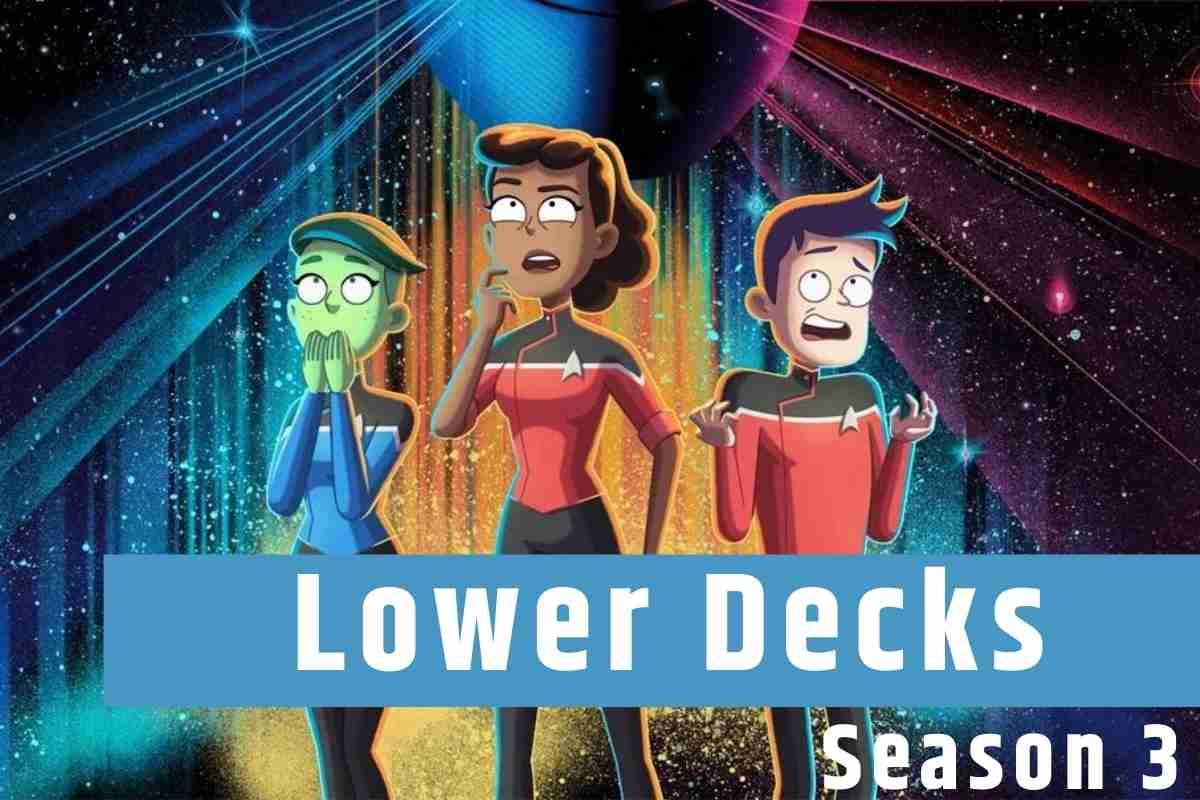Lower Decks Season 3 Is The Best Star Trek Show Of The Year
It should be difficult to create a true and authentic representation of anything while affectionately mocking it. Imagine if, bizarrely, nearly all James Bond fans believed that Austin Powers was one of the best James Bond movies. Star Trek: Lower Decks fulfils that need for the greater Trek fan base and the remainder of the Trek franchise. Having already started its third season and holding the top spot, the Star Trek show that was considered to be the riskiest when it initially appeared is no longer the underdog.
With the release of Season 3, Lower Decks has solidified its status as the new Trek series against which the several other shows set in this parallel reality should be judged. Here’s why. There won’t be any Star Trek: Lower Decks Season 3 spoilers.
One of the most widespread misconceptions about Star Trek in general is that in order for it to be excellent, it somehow needs to integrate cutting-edge, original science fiction. This wasn’t the case with The Original Series, and it hardly ever has been, which is another factor in the long-lasting success of this beloved franchise.
The science fiction clichés used in classic Star Trek in the 1960s were only familiar to a very small group of specialised magazine and book readers, but the show forcefully brought those concepts into the TV mainstream. There just wasn’t a common understanding of why science fiction on television succeeded or failed prior to Star Trek. Star Trek was compared to everything that came after it, even if those things were trying to do the exact opposite. As TOS screenwriter Norman Spinrad described it, “Star Trek revolutionised science fiction clichés like when Bob Dylan became electric.”
And what now? What relevance does Star Trek: Lower Decks have to this historical discussion?
Calling Lower Decks incredibly derivative is so obvious that it almost counts as humour. However, The Original Series and Lower Decks have in common the unwillingness to pretend that any of their cliches are new at the moment.
Making the Star Trek universe and the sci-fi clichés look fresher and better has been one of the key challenges for any Trek series since the TOS era. Each of these episodes, including The Next Generation, Discovery, and Strange New Worlds, wanted the audience to take its recently relaunched version of Trek seriously and saw novelty as a way to do this.
This is the trick to Lower Decks’ brilliance. Since it’s the only programme in the entire canon that doesn’t truly want to be, we should actually take it seriously. This is because all other Star Trek television series—including Lower Decks—share a core trait: wonderful individuals who, for better or worse, cohabit in a show that focuses on the workplace. The only difference is that they work in space in the Trek universe.
Lower Decks reinvents the concept of an office in space as a straightforward sitcom, which is a big part of why the programme is so popular. Since 2020, although it really started to gain traction in Season 3, the argument has been made that the strongest aspects of earlier Trek episodes aren’t also their likeness to the philosophical sitcom concept. How many of the top Star Trek: The Original Series episodes had a humorous and boisterous bridge scene?
Lower Decks Season 3 has more Trek Easter eggs, callbacks, and surpising cameos than Seasons 1 and 2. Just when you think this season won’t go there, it does. Then, on occasion, it takes Star Trek in areas you never thought it could, but you still enjoy it for it.
Despite the various flashy connections to the rest of Trek, it is intriguing to note that Season 3 also seems to have the most serialised internal continuity, at least when it comes to the character arcs of our beloved lower-deckers. The Mariner, a character played by Tawny Newsome in Season 1, is not the same person we see in Season 3. She has evolved into one of the funniest, saddest, and happiest Star Trek characters of all time.
These subtly funny character enhancements are also present in Boimler (Jack Quaid), Tendi (Noel Wells), and Rutherford (Eugene Cordero), all of whom change this season in surprising ways. Captain Freeman (Dawnn Lewis) asserts vehemently that he is one of the most consistently competent Starfleet captains in the entire franchise while this is happening.
No matter what their position, employees who execute their work properly rarely receive enough appreciation, goes a joke that Lower Decks loves to repeat. Lower Decks, Season 3 presents this moral conundrum from several angles and in radically diverse ways throughout various episodes. Is moral behaviour still acceptable when no one is looking? Even more so for an animated sitcom that is explicitly a parody of the most popular sci-fi franchise of all time, Lower Decks has a mirrored duality that is uncommon in sitcoms. This is due to the fact that it is commonly shown in these episodes that a private truth and a public truth are two completely different things.
But it’s these contradictions that give Lower Decks its fierce edge. The least ironic television show ever made is ironic on purpose. When Spock died in The Wrath of Khan, Kirk noted at his funeral that “of all the souls I have encountered in my adventures, his was the most human.” Ironically, since Spock wasn’t human, this was the situation. It was an amusing joke with a sombre undertone.
Only those who are familiar with Star Trek will find Kirk’s sarcasm hilarious. The setting of Lower Decks is the perfect synthesis of futuristic irony and humanitarian integrity. If spectators are lucky, the show will go on endlessly in that loop.
The first episode of Season 3 of Star Trek: Lower Decks will debut on Thursday, August 25, on PARAMOUNT+.
Follow us on Twitter
